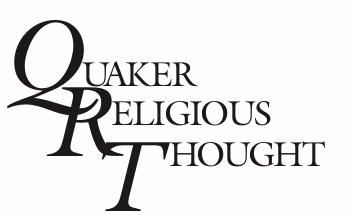
Abstract
In this essay, I will reflect on the remarks I shared in January 2022 on the “Decolonizing the Quaker Peace Testimony” panel of the Quaker Theological Discussion Group and in July 2022 on the “Invoking Unsettling” plenary of the Friends General Conference.
Unsettling has many different meanings and layers, whether it is thinking about unsettling settler colonialism or in unsettling some of our assumptions that we may not be comfortable grappling with. Settler colonialism has unfolded all over the world and unfortunately it continues in the present, not just in the United States.
For me, the context of Palestine/Israel hits very close to home given that I grew up in occupied Palestine and now live in the settler colony of the United States. Many scholars recognize the settler colonial realities that Palestinians have endured for over seven decades now. The heart of the issue is the Ashkenazi/European/white Zionist colonial policies that have been manifesting in Palestine ever since the establishment of Israel in 1948. Palestinians identify parallel struggles with indigenous communities all over the world.
Settler colonialism has different dimensions, including the political, economic, social, cultural, religious, and psychological. Trauma from settler colonialism is inherited over generations and it is even imprinted in peoples’ DNA.1 But we also have to remember that in addition to the suffering caused by settler colonialism, indigenous communities around the globe are also tremendously resilient.
How do Quakers respond to settler colonialism? Do we need to decolonize our peace testimony? Let me share a few disclaimers before I address these questions.
Even though I approach these issues as a theist Friend, I recognize the presence and importance of nontheist Friends in our Quaker communities. I appreciate very deeply the fact that our tradition is so open and there are many different types of Friends, including nontheists. Their voices matter in Quaker world-making. There are also individuals who identify as Jewish Quakers, Muslim Quakers, Buddhist Quakers, and other variations, and so not all Quakers revolve around Christianity. I recognize that Christianity for many people was a tool, and continues to be an instrument, for colonialism, imperialism, erasure of identity, and even cultural genocide.
If we want to decolonize our faith, practice, and traditions, and think about the global community of Quakers, we also need to recognize that the majority of Quakers are people of color around the world.2 For most Quakers, Christianity is an essential part of their Quakerism, and so having an open tent approach to Quaker theology and practice is warranted.3 For instance, in my case, as a former member of Central Philadelphia Monthly Meeting, and now as a member of Atlanta Friends Meeting, I appreciate that I am in an unprogrammed meeting and that we do not have religious symbols in our worship spaces. That is important to me and helps me ground myself spiritually. At the same time, the cross for me, personally, is a source of comfort. I know that such symbols are triggering in many ways for a lot of people and I completely understand and respect their needs. Yet these symbols do have immense spiritual value for many others.
My purpose in this essay is to make two major interventions. The first is for us to think about unsettling and decolonization as a praxis. And the second is to emphasize the value of deep listening to the voices of Quakers in Palestine—and the Palestinian Christian community more broadly–and how that can enrich our understanding of unsettling.
Recommended Citation
Atshan, Sa’ed
(2022)
"Unsettling: On Palestinian Quaker Theology,"
Quaker Religious Thought: Vol. 139, Article 2.
Available at:
https://digitalcommons.georgefox.edu/qrt/vol139/iss1/2
